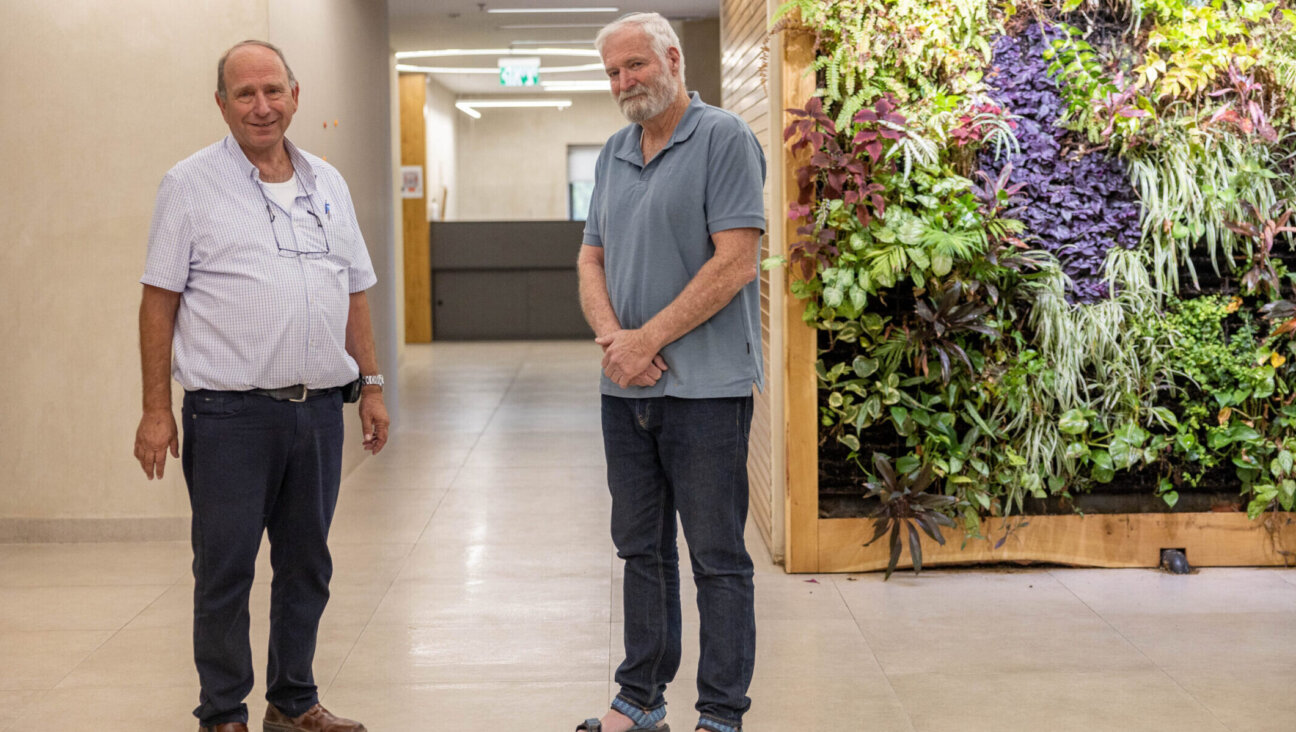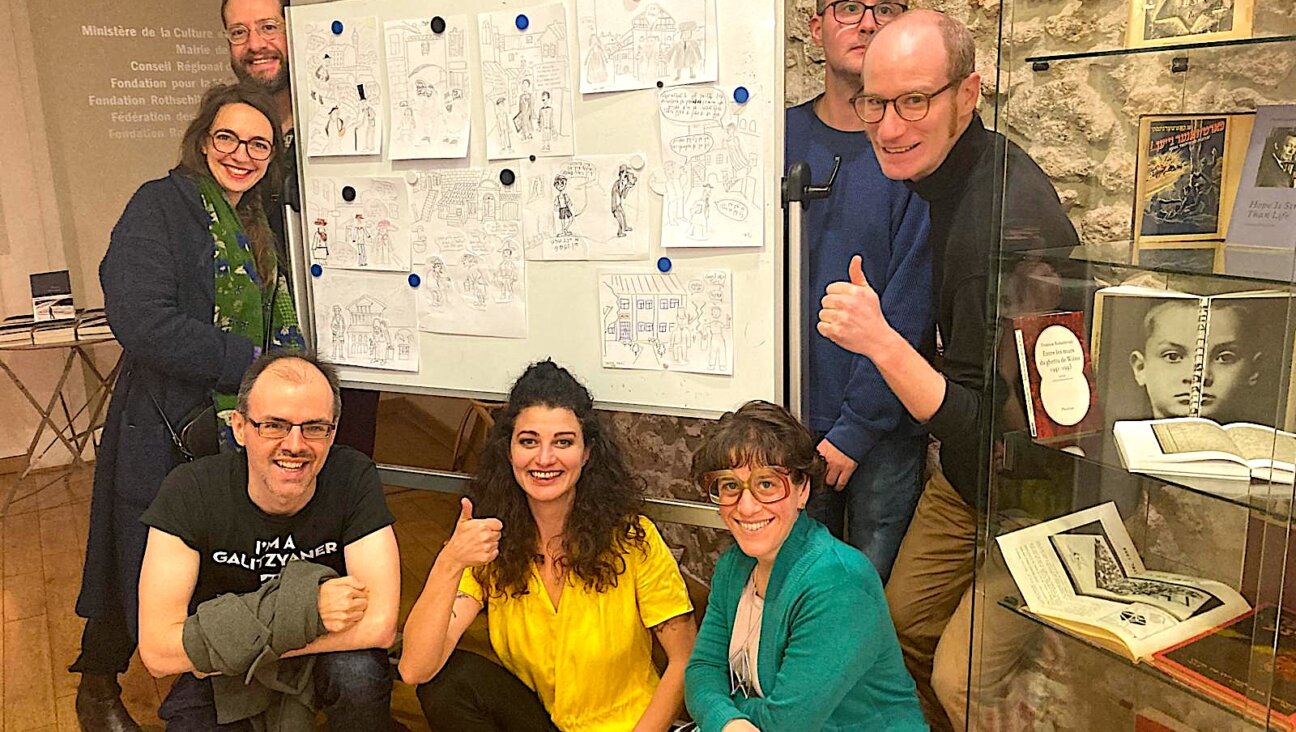Ladino: Alive in Song, If Not Speech
For centuries after their expulsion in 1492, Sephardic Jews kept their new homes sounding like medieval Spain. In places as disparate as Amsterdam, Turkey and Greece, the Sephardim continued to live and pray in Ladino, the Judeo-Spanish language, up until the 20th century. Today there are not many opportunities to hear the language spoken, but there have been a few recent occasions to hear it sung.
At the Jewish Music & Heritage Festival in New York this past September there were five Ladino groups, while the World Festival of Sacred Music in Los Angeles featured two ensembles singing Ladino love songs and ballads. One of these was Los Angeles’s Flor de Serena, which sang to a crowd of the nostalgic and the curious at its September 22 show. The performance complements the ensemble’s 2005 CD release, making the group a major presence in a minor scene.
The show was held in the church of a Catholic mission outside of Los Angeles — an unusual location since, after all, it was Catholics who expelled Ladino speakers from Spain. The band’s core members, singer Vanessa Paloma and guitarist Jordan Charnofsky, started off the show with a slow flamenco-style melody that quickly erupted into an upbeat song with the help of the flute, bass and percussion. This song, “Avram Avinu,” is well known and recounts the birth of Abraham. What followed was a set of both the popular and obscure, including mostly romanceros (love songs), along with two other religious tunes. The material was performed in chronological order and interwoven with a narrated history of the Sephardic Jews.
Given the lack of any archives for Ladino music in the United States, bringing the music to performance is not easy. Flor de Serena’s repertoire, which includes music from all the locations of the Sephardic Diaspora from medieval times to present, is a result of Paloma’s tenacity in procuring material. She was born in Colombia in 1971, where her only connection to Ladino music was the songs her grandmother used to sing. About 150 years earlier her family had come to the Americas, where, as with many others, their daily use of Ladino disappeared amid modern Spanish.
Always a lover of singing, Paloma studied Medieval European music at Indiana. But the focus on Ladino came later. Not until her 2000 scholarship to study in Israel, where she originally intended to study Hebrew traditional music, did the singer begin to connect with Ladino music.
She credits the shift to an Israeli film about a gypsy music scholar who goes from obsessively making recordings to becoming an itinerant gypsy musician himself. After watching the movie, Paloma abandoned some of her academic pursuits and gave in to her burgeoning curiosities about religion and her Sephardic heritage. She ended up staying in Israel for a year (rather than the planned three months), and she devoted much of her time to Ladino music.
“I realized I can just stand on the edge, from an intellectual position, looking in like an observer,” Paloma said in a recent interview with the Forward. “Or I can I just let it seep into me and out of me… and try to make things from a deeper place.”
After returning from Israel resolved to perform Ladino music, Paloma met classical guitarist Charnofsky. Together they formed Los Angeles’s only Sephardic ensemble. Although Paloma had acquired a few songs from the Sound Archives at the Hebrew University, she needed more material. “I am always looking for something more obscure,” she said.
One of the most obscure songs played at the concert came from the family of one of Paloma’s piano students. After discovering that this child’s deceased grandfather had penned one of the only Ladino songs written in Los Angeles, she asked the student’s father if she could use the song, “Los Japones.” It laments the disappearance of the Japanese during World War II in Los Angeles’s flower district, the work area of the songwriter, Jack Mayesh. Since the Ladino language had been used for centuries to sing about the uprooting of the Sephardim, Mayesh felt it would be ideal for expressing his empathy for the displaced Japanese.
Paloma sang “Los Japones” over the phone to Mayesh’s son on the way to the recent show. “He told me I nailed it,” she said, “and that when I sing it his dad will be smiling in Gan Eden. ”
During the recent show, Paloma sat on a chair for most of the performance — moving only her hand to undulate with the medieval intonations of her voice. Often she would offer her own personal anecdotes about finding the songs, and she became particularly spirited about the final number, “La Llave de España” (“The Key of Spain”). The song, written by contemporary Ladino musician Flory Jagoda, ruminates over the keys to ancestors’ houses in Spain, which many Sephardic families still have with them. Paloma said these keys are a “mandatory part of the décor in the house” and stand for Sephardic Jews’ enduring devotion to Spain.
Besides the Sephardim, this historical connection to Spain applied to the many attendees of the show who were of Latin American descent. According to Charnofsky, Flor de Serena receives a lot of interest from Los Angeles’s large Spanish-speaking population. The music incorporates the shared ancestry of certain Jews and Latinos and is a place where these Angeleno populations can come together. Along with Latinos, Middle Easterners and fans of medieval music have been responsible for much of the CD’s sales and the concert attendance in Los Angeles.
Elissa Strauss is a writer and film producer living in New York City.
A message from our CEO & publisher Rachel Fishman Feddersen

I hope you appreciated this article. Before you go, I’d like to ask you to please support the Forward’s award-winning, nonprofit journalism during this critical time.
We’ve set a goal to raise $260,000 by December 31. That’s an ambitious goal, but one that will give us the resources we need to invest in the high quality news, opinion, analysis and cultural coverage that isn’t available anywhere else.
If you feel inspired to make an impact, now is the time to give something back. Join us as a member at your most generous level.
— Rachel Fishman Feddersen, Publisher and CEO























